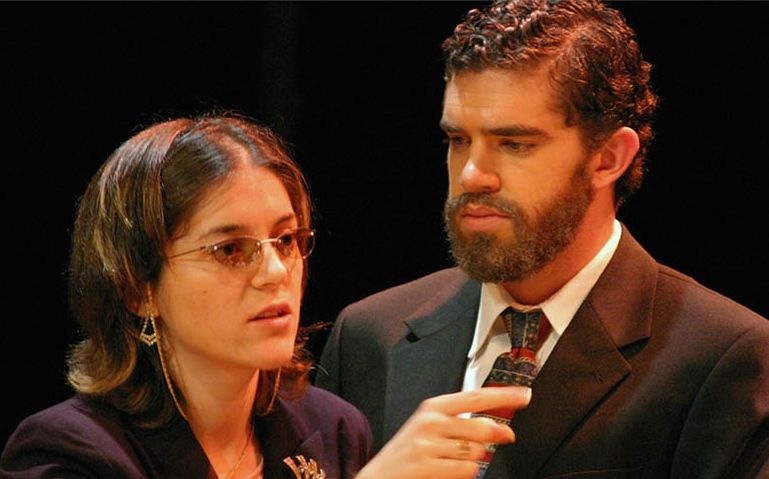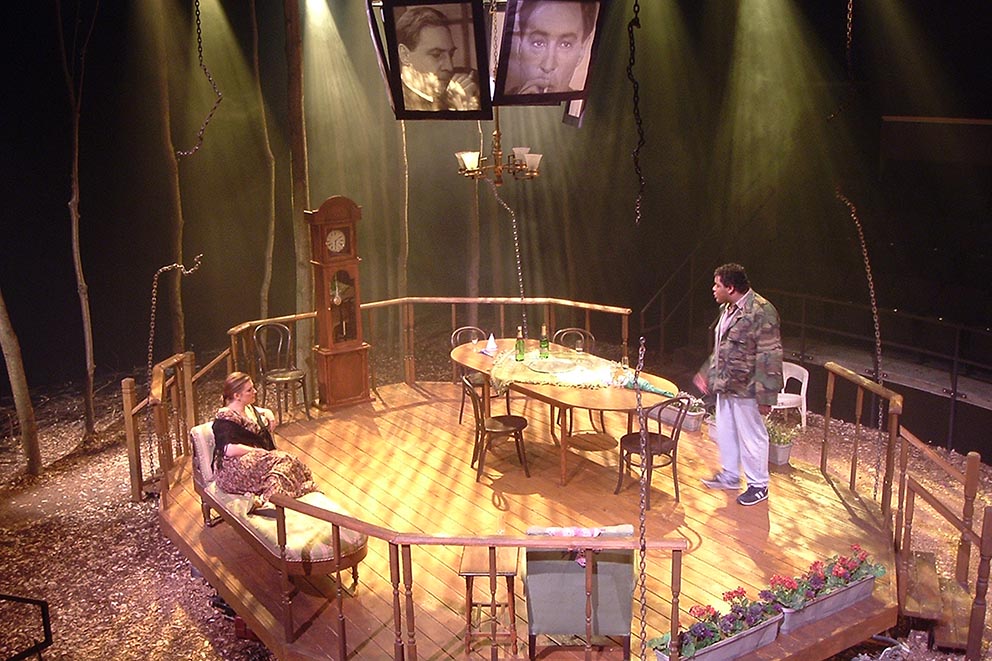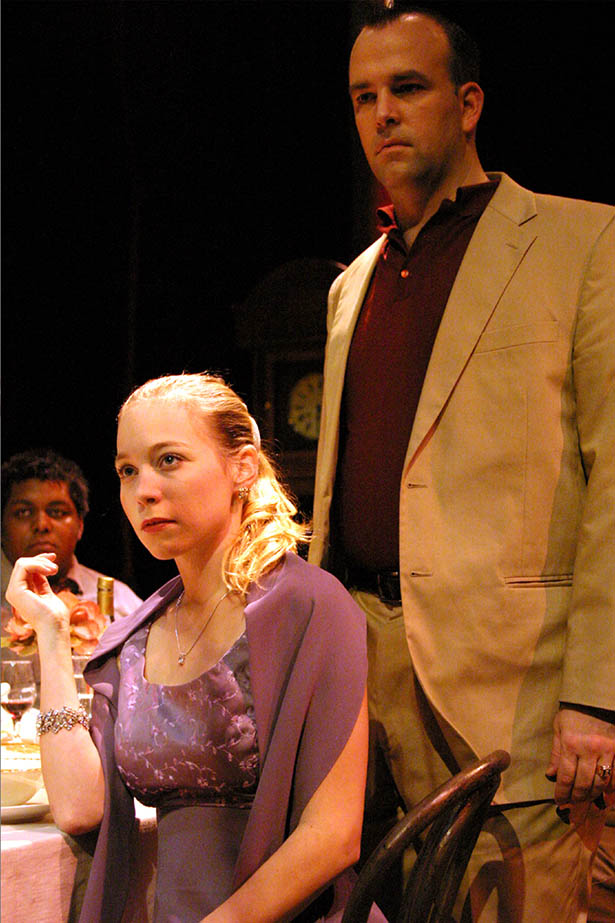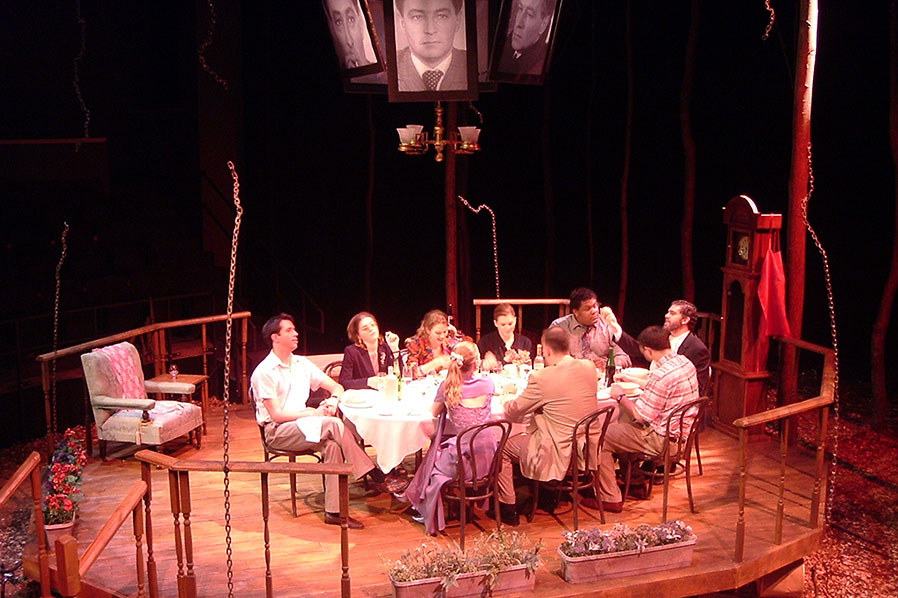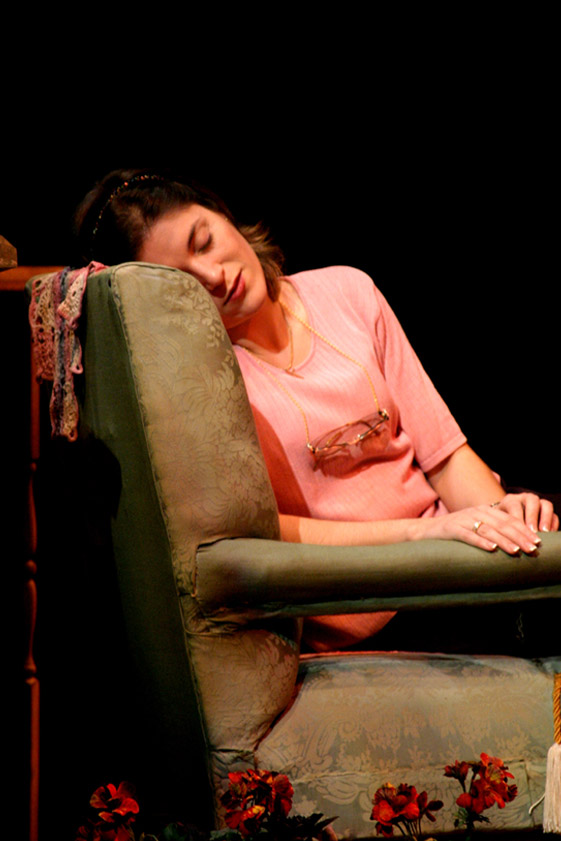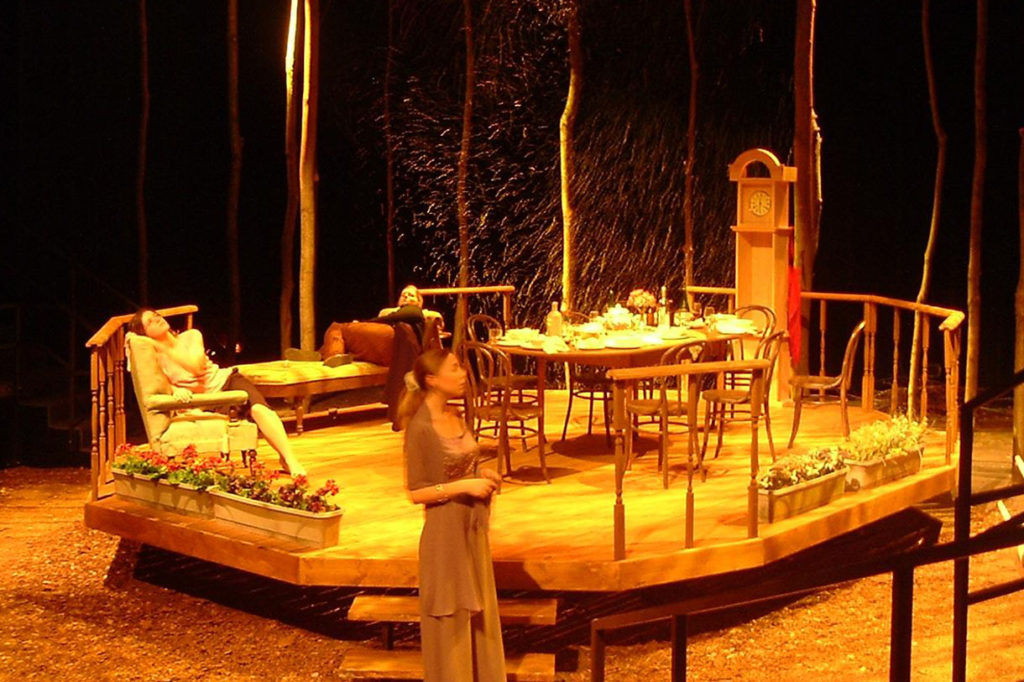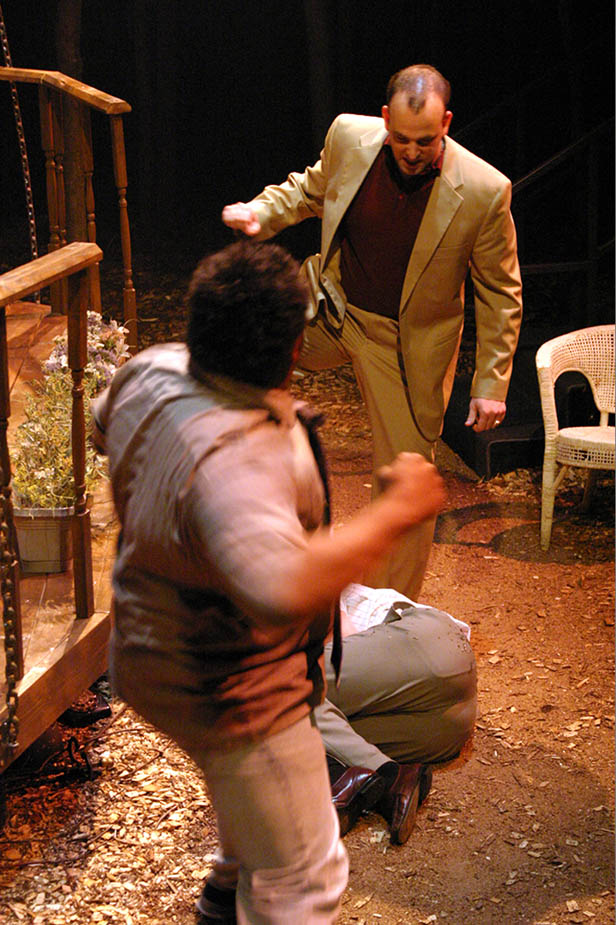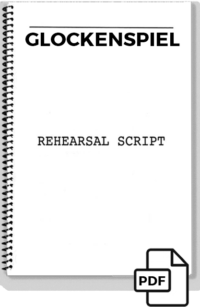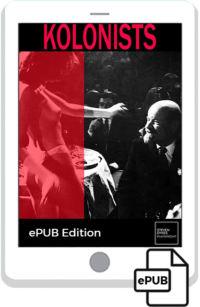A once-privileged Russian family, long established in Estonia, now face an uncertain future in this newly independent nation.
A once-privileged Russian family, long established in Estonia, now face an uncertain future in this newly independent nation.
Since the collapse of the Soviet regime, the Rusakov family has suffered from the general displacement and uncertainty (though not quite the battle for survival) that most living in the lands now dubbed ‘the former Soviet Union’ know well. Only several years ago, before the fall, the Rusakovs, consisting of three archetypal sisters and a father who died a year before the setting of the play, split their time between a town house in the capital of Tallinn and a house by the sea, where the play takes place. Now, with Estonian independence, the already tenuous position of this family of second-generation emigres from Russia, whose patriarch was a Party official, seems even more questionable.
The lounging sisters of an early scene exude more pathos and nostalgia than immediate concern for the preservation of their social position, creature comforts, and idealistic philosophies. When they hear that their brother will soon visit with their businessman cousin from Moscow, they do not realize that this reunion will not be like the innocent childhood days of running on the beach and wandering the garden. They are forced to realize their mistake when their cousin, Vassily, shows up with a voluptuous, leather-clad prostitute on his arm.
Lauren DeMille, The Columbia Spectator, Columbia University, October 1997
The Republic of Estonia (Eesti Vabariik) lies on the western shores of the Baltic Sea, sharing borders with Latvia and Russia. The country is the world’s smallest nation-state to have its own distinct language and a fully developed modern culture based on that language.
In 1991, after fifty years of Soviet occupation and enforced Russification, Estonia emerged once more as an independent democracy. However, a third of its 1.5 million population remains Russian.
The majority of these colonists, whose families settled in Estonia in the 1940s and 50s, speak little or no Estonian – a basic requirement when applying for citizenship in the new state.
“Steven Dykes' gripping new play about Russian ex-pats staying on after Estonian independence, has been dubbed Chekhovian. True, there are three sisters sharing the family dacha ... but with its intricate, inter-kicking mosaic of character and plot development impossible to summarise, its explosive emotional force and impressive grasp of emergent Russian business ethics, the tone is closer to Gorky, although Dykes has a fresh and original voice of his own ... [T]his outstanding new drama demands to be seen.”
John ThaxterThe Stage, 1996
“A highly intelligent and thought-provoking drama about a once-privileged Russian family long established in Estonia who now face an uncertain future in this newly independent nation. While there are consciously Chekhovian echoes, Dykes' play is more overtly political (including a reference to Chechnya), as it shows us how colonial Russia is still alive and kicking in post-communist times ... Under Nesta Jones' outstanding direction, the play's complex social themes are fully integrated into the family drama. Kolonists forcefully makes the point that, for many, the dreams of 1989 have turned into nightmares.”
Neil DowdenThe Stage, 1999
“Ten years ago the Berlin Wall was breached and Eastern Europe still reels from that long-awaited blow. The media celebrates, dignitaries visit, we all congratulate ourselves, but not much has really changed; the liberated countries struggle, and Russia won't admit to its crimes. Over here the millennium occupies our attention but a cluster of theatrical productions are marking the occasion, the first being this juicy steak of a play produced by NXT ... The actor-author Steven Dykes has found a neat way to link the beginning and end of our century by echoing themes from Chekhov's Three Sisters, first produced in 1901. In place of the Prozorov trinity we have the Rusakovs, but they too see a comfortable little world fall apart -under the hammer-blows of change ... The play's argument is that the Russian bear has not shed its claws, and if denied lands to exploit by conquest it will colonise them in other ways. Vassily is one of the new generation of pillagers, yet also a truth-teller, which makes him a continually interesting anti-hero ... It's a treat to find an author alert to social and political misbehaviour in a world wider than a London drug alley.”
Jeremy KingstonThe Times, 1999
“This] fresh and challenging play begins in Chekhovian vein, with three sisters lolling in their family's coastal summerhouse … Dykes skillfully sets up the ructions in the Rusakovs' relationships with each other — and Estonia — as a microcosm of the power politics and dodgy economics of the former Soviet Union. His disturbing but engaging study explains what happens to those who find themselves on neither side of the balance of power, whose local identity has been changed without their consent, and whose homeland has altered 'beyond recognition.”
Maeve WalshThe Indepednent on Sunday, 1999
“As the politics is spiced up with family intrigue, `Kolonists' descends into a gleefully vengeful territory alien to Chekhov. It's engaging stuff: I was fascinated by the cultural insights, and entertained by the irreverent deviations from Chekhov's revered original.”
Brian LoganTime Out, 1999
“Dykes' strength is his ability to write his own play while paying tribute to another ... The playwright's devotion to the Russian master makes for compelling theatre ... Dykes' intelligent articulation of the political and criminal problems facing the Baltic States and Eastern Europe breathes dramatic fire.”
Jeffrey Eric JenkinsBackstage (New York) 1997
”A highly intelligent and thought-provoking drama. While there are consciously Chekhovian echoes, Kolonists is more overtly political, as it shows us how colonial Russia is still alive and kicking in post-communist times.
The Stage
GALLERY
Photographs from the 2004 West Virginia University production.
LATEST NEWS
Check out the latest updates about performances of this play.

